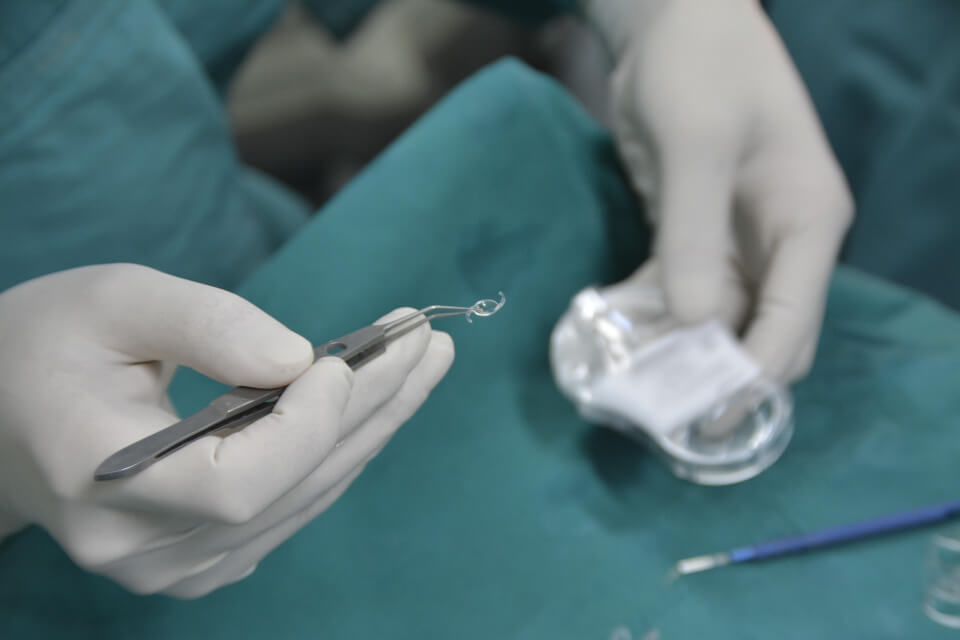Understanding Cataracts: Symptoms, Risks & When to Consider Surgery in Birmingham
3 Apr 2025
Struggling to read road signs on the A38 or spot autumn hues in Sutton Park? Cataracts—a common age-related clouding of the eye’s lens—can quietly rob Birmingham residents of life’s sharpest moments. At DS Eye Surgeon, we help you navigate NHS wait times (often many months) and unlock faster access to private cataract surgery with premium lens options that restore crisp vision in 2–4 weeks. In this guide, discover how to spot early symptoms like glare sensitivity or fading colours, weigh NHS vs. private pathways, and explore advanced intraocular lenses (IOLs) tailored to active lifestyles—from golfing in Edgbaston to reading in Harborne. Ready to reclaim clear sight? Book a free video consultation with private ophthalmologist in Birmingham Mr. Dilraj Sahota.
What Are Cataracts?
Cataracts are a common and progressive eye condition that affects the natural lens of the eye. This lens, which is normally clear, becomes cloudy over time, leading to blurry, dimmed, or less vivid vision. Cataracts develop gradually and may affect one or both eyes, meaning you might not initially notice the slow deterioration in vision.
While age is the most common cause of cataracts, other contributing factors include:
- Genetics: A family history of cataracts increases your risk.
- Cumulative UV light exposure: Sun damage can speed up lens clouding.
- Diabetes: High blood sugar levels accelerate cataract development.
- Medications: Long-term steroid use has been linked to cataract formation.
- Previous Eye Injuries: Trauma can trigger early cataract development.
If left untreated, cataracts can significantly impair daily activities like driving, reading, watching TV, or hobbies like gardening, golfing, and photography. Because cataracts progress over years, you may be unaware of just how much better your vision could be after surgery.
Recognising Cataract Symptoms in Birmingham
Cataract symptoms vary depending on the type and stage of the condition. If you live in or around Birmingham, keep an eye out for these common signs:
- Blurred Vision: Struggling to read street signs, such as those on Harborne Road, or difficulty making out menu text in Birmingham restaurants.
- Light Sensitivity: Oncoming headlights on routes like the A38 may cause glare and discomfort, especially at night.
- Faded or Yellowed Colours: This may be difficult to recognise since the colours will become less vivid slowly over many years. You could use frames of reference to compare to. For example the vibrant hues of Sutton Park’s autumn leaves might appear dull.
- Frequent Prescription Changes: If you constantly need stronger glasses or contact lenses, cataracts may be progressing. This because worsening cataract can cause progressive short-sightedness in the eye.
- Haloes Around Lights: Rings or haloes around streetlights and car headlights.
- Double Vision in One Eye: If you see overlapping images in a single eye, this may indicate cataracts. This is called monocular diplopia.
For a complete overview of cataract diagnosis and treatment options, please visit our Cataract Page.

Local Tip: Many patients in Moseley, Edgbaston, and Harborne first notice cataract symptoms while driving at night or engaging in hobbies like gardening, reading, or playing golf. If you experience any of these signs, an eye specialist at a private eye clinic in Birmingham can provide a thorough evaluation and discuss premium intraocular lenses (IOLs) options to get you back to enjoying your hobbies.
Who Is at Risk of Developing Cataracts?
While cataracts are most commonly associated with ageing, certain individuals are at a higher risk, including:
- Smokers: Smoking increases oxidative stress, which accelerates cataract formation.
- People with Diabetes: High blood sugar levels damage eye proteins.
- Long-term Steroid Users: Steroid medications, including inhalers and steroid creams, can cause cataracts.
- People with High Sun Exposure: UV damage is cumulative over time.
If you fall into any of these categories, regular eye exams are essential for early detection.

When Should You Consider Private Cataract Surgery in Edgbaston?
Cataracts progress gradually, and many people adapt to the visual decline. However, there comes a point when surgery is necessary to maintain quality of life and independence. Consider private cataract surgery in Birmingham if:
- Your vision impacts daily tasks: Struggling with driving, reading, or working.
- You don’t want to wait on the NHS waiting list: In Birmingham, NHS cataract surgery wait times can stretch months, even just for an initial consultation.
- You want the best vision possible across multiple focal lengths: Private cataract surgery allows access to advanced premium IOLs, improving distance, intermediate, and near vision.
If lengthy NHS wait times and the prospect of consultant-led care influence your decision, learn more about the advantages of selecting private cataract surgery by reading our article on Why Choose Private Cataract Surgery in Birmingham? Benefits Over NHS Care.
NHS vs. Private Cataract Surgery in Birmingham
|
NHS Pathway |
Private Cataract Surgery at DS Eye Surgeon |
|
|
Wait Time |
Often months to be seen and months longer for surgery |
2–4 weeks for 1st eye surgery |
|
Lens Options |
Monofocal IOLs leave you with blurry vision for near and intermediate distance |
Premium IOLs (Tecnis Puresee, Multifocal, Toric) for reduced glasses dependence |
|
Surgeon |
Assigned by NHS, often a training eye surgeon |
Your Consultant (Mr. Dilraj Sahota) |
|
Scheduling |
Depends on backlog of appointments |
Flexible, including some Saturday appointments |
|
Follow-Up Care |
Variable, often not by a doctor |
Personalised aftercare with Mr. Sahota |
Why Birmingham Patients Choose Private Cataract Surgery
1. Consultant-Led Care
Unlike the NHS, where you may be treated by a rotating junior doctor, private cataract surgery ensures that an experienced consultant ophthalmologist (Mr. Dilraj Sahota) oversees every aspect of your care.
2. Premium IOLs for Active Lifestyles
- Multifocal IOL’s: Reduce dependence on glasses for reading and intermediate vision.
- Toric IOL’s: Correct astigmatism for sharper vision.
- Extended Depth of Focus (EDOF) IOL’s: Increase the depth of field across which you maintain good vison without glasses compared to monofocal IOL’s, whilst reducing the risk of haloes and glare compared to multifocal IOL’s
3. Fast & Flexible Scheduling
At DS Eye Surgeon, private cataract surgery is available within 2-4 weeks, with some Saturday morning clinic slots upon request for initial consultations.
For patients looking for a refractive solution that minimises dependence on glasses, our enhanced cataract surgery offers access to cutting-edge premium intraocular lenses; discover more about the different lens options in our detailed guide on Premium Intraocular Lenses (IOLs): Your Guide to Advanced Options in Birmingham.

Delaying Cataract Surgery Can Increase Falls Risks
Expert Insight:
"Early intervention in cataract treatment improves outcomes. Evidence shows that patients with worse pre-operative vision have a higher risk of PC rupture- a serious complication of cataract surgery. Private cataract surgery allows you to address the issue before it significantly impacts your life." – Mr. Dilraj Sahota
Risks of Delaying Cataract Treatment
Waiting too long for cataract surgery can lead to:
- Increased Risk of Falls: Poor vision heightens accident risk due to difficulty judging distances and reduced contrast sensitivity.
- Loss of Independence: Everyday tasks become more difficult so there is an added opportunity cost of all the things that you could have done but didn’t whilst waiting for surgery.
- Increased Risk of Dementia: A study has shown that patients who underwent cataract surgery had nearly 30% lower risk of developing dementia from any cause for at least 10 years after surgery.
- More Complex Surgery: The longer you wait, the higher the risk of complications like posterior capsule rupture
For a transparent look at pricing and to understand how our private cataract surgery costs compare, please read our article on Understanding the Cost of Private Cataract Surgery in Edgbaston.
Frequently Asked Questions
1. How long are NHS cataract surgery waits in Birmingham?
NHS cataract surgery waits can stretch for months depending on the NHS trust, meaning prolonged vision deterioration. There are third-party providers that are contracted to provide NHS cataract surgery that have reduced waiting lists to less than one month in some units, but you may still have a training surgeon operating on your eye , you do choose your surgeon and often will not meet your surgeon before the day of your operation. Private cataract surgery at DS Eye Surgeon is available within 2–4 weeks and Mr. Sahota will deliver every step of your care.
2. Can I get premium IOLs on the NHS?
No. NHS cataract surgery doesn’t offer multifocal or EDOF IOL’s- only monofocal lenses, meaning you will likely still need glasses for reading and intermediate distances.
3. Is private cataract surgery better than NHS cataract surgery?
Private cataract surgery offers:
- Guaranteed consultant-led surgery (instead of training ophthalmologists).
- Access to premium IOLs for reduced dependence on glasses.
- Faster access to surgery without long NHS wait times.
Your Next Steps
✅ Book a Free 15-Minute Video Consultation: Discuss your symptoms and lens options with Mr. Dilraj Sahota.
✅ Compare NHS vs. Private Pathways: Get an honest comparison tailored to your situation.
✅ Regain Your Vision: Choose fast, flexible, consultant-led private cataract care in Birmingham.
Why wait months? Choose consultant-led care and premium IOL lenses. Book Your Free Video Consultation today.
